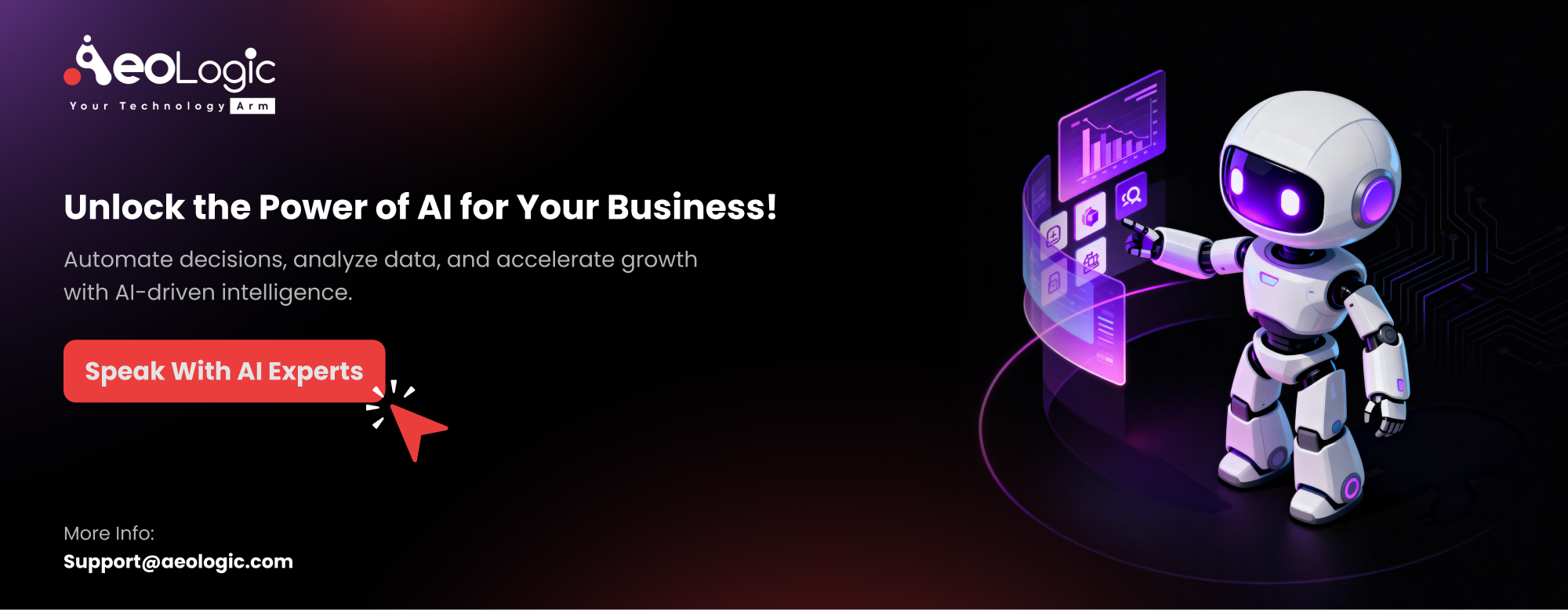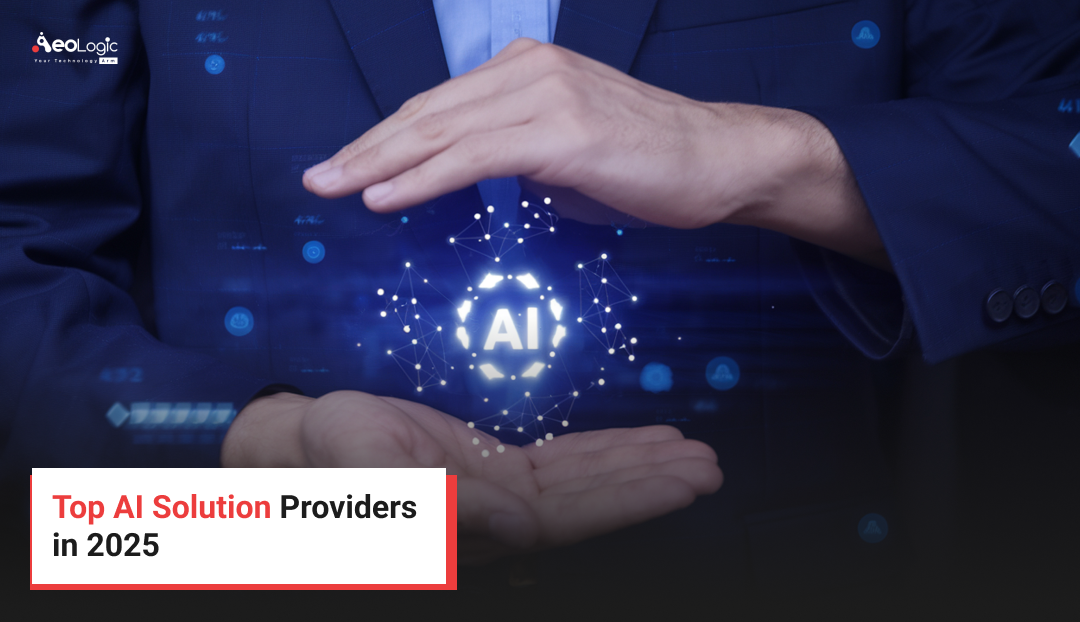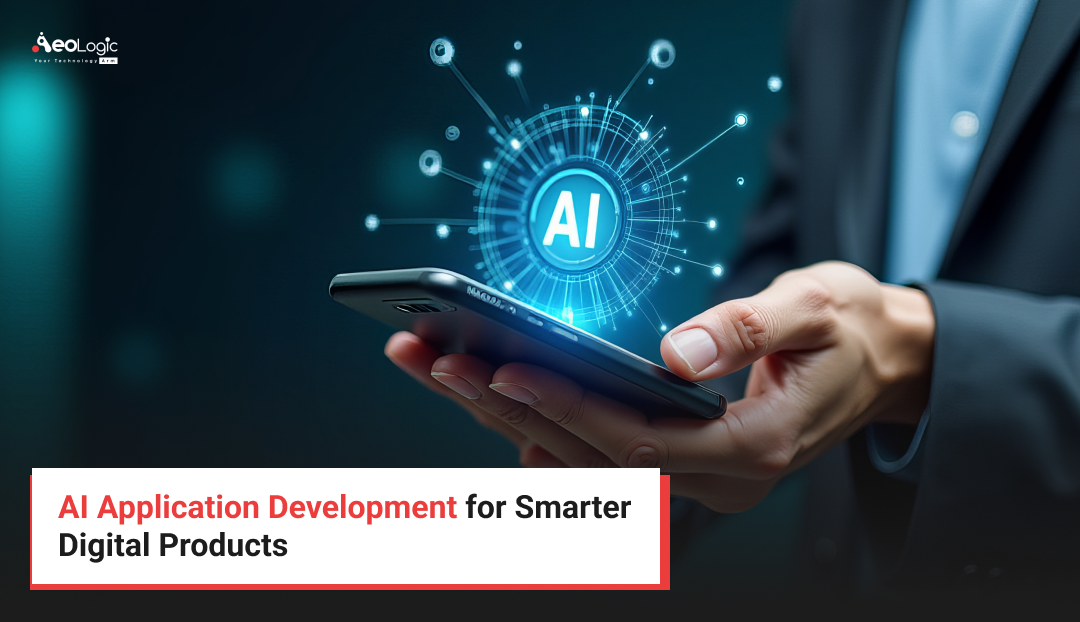Artificial Intelligence (AI) is transforming the way industries operate and innovate. From automating daily tasks to predicting business outcomes, AI is becoming a fundamental part of every digital ecosystem. Businesses across the world are integrating AI to improve decision-making, reduce costs, and enhance customer experience. The Top AI Solution in 2025 combines machine learning, natural language processing, predictive analytics, and automation to create intelligent systems that can learn and adapt. These solutions help organizations manage data efficiently, understand customer needs, and make faster decisions.
AI has moved beyond research labs and tech startups. Today, it powers healthcare systems, banking operations, logistics networks, and even agriculture. The rapid evolution of AI technologies continues to push the boundaries of what businesses can achieve with automation and analytics.
Global Market Overview of AI Solutions
The global AI market is expanding at an unprecedented rate. In 2025, the global artificial intelligence market is projected to reach around USD 390 billion, growing at a CAGR of 36% between 2025 and 2034.
The demand for AI is being driven by automation, cloud computing, and the growing need for data-driven insights. From predictive modeling to intelligent customer service bots, the applications of AI have become almost limitless.
Industries like healthcare, retail, manufacturing, banking, and education are adopting AI technologies to improve productivity and optimize resource utilization. With data becoming the new fuel for growth, businesses that use the Top AI Solution gain a competitive advantage through enhanced analytics and forecasting capabilities.
AI is also playing a vital role in sustainability by helping organizations monitor energy consumption, reduce waste, and improve efficiency in industrial operations. The future of every business process is heading toward intelligent automation powered by AI.
The Role of AI in Digital Transformation
AI is one of the strongest pillars of digital transformation. It enables businesses to make data-backed decisions and automate repetitive processes. Digital transformation is not limited to one technology—it involves multiple layers of integration, and AI stands at the core of this transformation.
AI solutions are enhancing efficiency, accuracy, and scalability across sectors. For example, in healthcare, AI helps detect diseases early and recommend personalized treatment plans. In retail, it analyzes consumer behavior to create personalized recommendations. In finance, AI helps identify fraud and streamline operations.
When combined with IoT, cloud computing, and machine learning, AI enables predictive maintenance, smart logistics, and real-time decision-making. The Top AI Solution is designed to make businesses more intelligent and adaptive in an increasingly digital world.
Benefits of Using Top AI Solution
AI offers a wide range of benefits for businesses that want to stay ahead of the competition. Here are some of the key advantages of implementing the Top AI Solution in 2025.
1. Improved Decision-Making
AI processes large volumes of data faster and more accurately than humans. With predictive analytics and machine learning, organizations can make informed decisions based on data patterns and insights rather than assumptions.
2. Increased Efficiency and Automation
AI automates time-consuming and repetitive tasks, freeing employees to focus on strategic work. Whether it’s data processing or customer support, automation through AI enhances productivity and reduces operational costs.
3. Enhanced Customer Experience
AI-driven chatbots, recommendation engines, and sentiment analysis tools improve customer interactions. Businesses can offer personalized experiences and faster responses, which increases satisfaction and loyalty.
4. Predictive Analytics and Forecasting
The Top AI Solution uses predictive models to identify trends and forecast future outcomes. This helps businesses anticipate demand, prevent equipment failure, and make proactive decisions.
5. Cost Optimization
AI reduces human errors and operational inefficiencies. Automated systems ensure better accuracy and faster performance, helping companies save both time and money in the long run.
6. Strengthened Data Security
AI plays a crucial role in cybersecurity by detecting threats, analyzing behavior, and preventing unauthorized access. AI-powered monitoring systems can identify vulnerabilities faster than traditional methods.

Leading AI Solution Providers in 2025
Several global companies are leading the development and deployment of AI solutions. Below is a list of some of the Top AI Solution Providers in 2025 that are driving innovation and transforming industries worldwide.
1. IBM Corporation
IBM has been a pioneer in artificial intelligence with its Watson AI platform. Watson provides cognitive computing, natural language processing, and machine learning capabilities across industries. In 2025, IBM continues to expand its AI services in healthcare, finance, and customer analytics.
2. Microsoft Corporation
Microsoft remains a leading AI solution provider through its Azure AI services. Azure offers tools for natural language understanding, computer vision, and predictive modeling. Microsoft’s AI integration across Office 365, Dynamics, and cloud infrastructure positions it among the Top AI Solution providers globally.
3. Google Cloud AI
Google Cloud provides an extensive range of AI tools, including TensorFlow, AutoML, and Vertex AI. These platforms allow developers and businesses to build, deploy, and scale machine learning models efficiently. Google’s AI also supports data analytics and advanced automation for multiple industries.
4. Amazon Web Services (AWS)
AWS continues to dominate the AI market with its cloud-based services such as SageMaker, Lex, and Rekognition. These tools support deep learning, NLP, and image recognition. AWS’s AI solutions are helping businesses automate workflows and improve customer engagement.
5. NVIDIA Corporation
NVIDIA leads in AI computing hardware and software. Its GPUs are the backbone of deep learning and AI model training. In 2025, NVIDIA’s AI platform supports industries from autonomous vehicles to healthcare analytics, making it a key player among AI technology providers.
6. OpenAI
OpenAI is at the forefront of developing large language models and generative AI systems. Its technologies are being used in conversational AI, creative tools, and business automation. In 2025, OpenAI continues to advance responsible AI innovation and collaboration with global enterprises.
7. Oracle Corporation
Oracle’s AI capabilities are integrated into its cloud infrastructure and enterprise applications. Its autonomous database, machine learning tools, and analytics platforms help businesses improve efficiency and security. Oracle’s AI solutions are transforming enterprise operations across finance, supply chain, and HR.
8. SAP SE
SAP offers AI-driven solutions integrated into its enterprise software ecosystem. Its AI tools automate business processes, enhance analytics, and optimize operations for global enterprises. SAP’s AI framework is widely used for predictive maintenance, customer analytics, and workflow management.
9. Salesforce
Salesforce integrates AI into its customer relationship management (CRM) tools through Einstein AI. This system enables predictive analytics, lead scoring, and automated customer insights. In 2025, Salesforce continues to advance personalized marketing and sales automation using AI. Its solutions help businesses understand consumer behavior and forecast trends effectively.
10. Intel Corporation
Intel plays a vital role in AI hardware and edge computing. Its processors and AI accelerators are widely used in data centers, autonomous vehicles, and IoT devices. Intel’s AI technologies help enterprises train models faster and perform analytics in real time. The company’s investments in neuromorphic and quantum computing further strengthen its place among the Top AI Solution Providers in 2025.
11. Baidu AI Cloud
Baidu has become a major AI player in Asia with its advanced natural language processing, speech recognition, and computer vision systems. Its AI Cloud platform provides solutions for smart cities, autonomous driving, and digital marketing. In 2025, Baidu focuses on expanding its AI ecosystem globally with energy-efficient and scalable products.
12. DataRobot
DataRobot offers an automated machine-learning platform that simplifies the development and deployment of AI models. It enables organizations to build predictive models without deep coding knowledge. In 2025, DataRobot remains a preferred choice for companies looking to operationalize AI quickly and cost-effectively.
13. C3.ai
C3.ai provides enterprise AI solutions for sectors such as manufacturing, energy, and defense. Its applications focus on predictive maintenance, supply-chain optimization, and fraud detection. The company’s ability to integrate AI with IoT and big-data platforms has placed it among the leading global providers of automation and analytics solutions.
14. H2O.ai
H2O.ai specializes in open-source AI and machine-learning tools. Its AutoML platform allows data scientists to train and deploy AI models faster. In 2025, H2O.ai continues to help organizations accelerate digital transformation by providing customizable and transparent AI frameworks.
15. SAS Institute
SAS delivers advanced analytics and AI software that helps enterprises make data-driven decisions. Its platforms combine data management, predictive analytics, and AI automation. SAS’s focus on responsible AI and real-time decision intelligence secures its position as one of the Top AI Solution providers in 2025.
Cost to Implement AI Solutions
The cost of implementing AI varies depending on the complexity of the system, data requirements, and business objectives. A small-scale AI deployment, such as chatbot integration or simple analytics tools, can range between USD 20,000 and USD 80,000.
For enterprise-level AI projects involving big-data analytics, deep-learning models, and integration with existing infrastructure, costs may exceed USD 300,000. Companies investing in custom AI platforms, predictive models, and hardware acceleration could spend over USD 1 million, depending on scale and sector.
Just like predictive analytics or RFID adoption, the investment in AI should be viewed as long-term. Although the initial setup may seem high, AI significantly reduces manual work, minimizes operational errors, and increases efficiency across all departments.
Businesses implementing the Top AI Solution generally report faster decision cycles, improved forecasting accuracy, and a measurable rise in customer satisfaction.
Future Trends in Artificial Intelligence
Artificial intelligence is evolving rapidly, and several emerging trends are shaping the future of this technology in 2025 and beyond.
1. Generative AI Expansion
Generative AI is transforming how content, design, and software are created. From text generation to image and code synthesis, it allows businesses to innovate faster. Organizations are adopting generative models to build creative solutions, automate documentation, and enhance customer experiences.
2. AI-Driven Automation
Automation powered by AI is replacing traditional rule-based systems with intelligent workflows. Businesses are now combining AI with robotic process automation to achieve hyperautomation. This integration boosts accuracy and cuts process time across finance, logistics, and healthcare.
3. Responsible and Ethical AI
As AI becomes more powerful, ethical considerations gain priority. Companies are focusing on transparent algorithms, data privacy, and bias elimination. In 2025, responsible AI practices ensure fairness, accountability, and compliance with international data standards.
4. AI at the Edge
Edge AI brings intelligence closer to data sources, allowing faster decision-making in real time. This trend is growing in industries like manufacturing, automotive, and telecom, where latency reduction and instant analytics are essential.
5. AI-Powered Cybersecurity
Cybersecurity systems now rely on AI for advanced threat detection. AI monitors network behavior, detects anomalies, and prevents breaches before they occur. This proactive approach strengthens digital defense mechanisms for businesses worldwide.
6. AI in Healthcare and Life Sciences
AI continues to revolutionize healthcare by enabling precision medicine, early diagnosis, and virtual patient monitoring. Machine learning models analyze medical images and patient data to support doctors in making accurate decisions.
7. AI and Internet of Things (AIoT)
The combination of AI with IoT is leading to the rise of AIoT systems. These systems connect smart devices and use real-time analytics to enhance operational efficiency. AIoT is becoming vital in smart homes, connected vehicles, and industrial automation.
8. Quantum AI
Quantum computing is beginning to merge with AI, offering faster data processing and deeper insights. Though still in its early stages, Quantum AI has the potential to solve complex problems that traditional computing cannot handle.
9. Low-Code AI Platforms
Businesses are adopting low-code AI platforms that enable non-technical users to build and deploy AI models. This democratization of AI helps organizations of all sizes implement intelligent solutions without heavy technical investment.
Conclusion
Artificial Intelligence has moved from being an emerging technology to an essential business requirement. From automating tasks to driving innovation, the Top AI Solution is now at the heart of every successful digital strategy.
The year 2025 marks a turning point as AI becomes more accessible, transparent, and connected. Industries that embrace AI will achieve faster growth, improved efficiency, and better customer experiences. Whether it’s predictive analytics, natural language understanding, or automation, AI continues to redefine the future of business operations.
Companies adopting the Top AI Solution will not only lead in efficiency but also in innovation and sustainability. As technology continues to evolve, AI will remain the foundation of intelligent enterprises across the world.
FAQs
1. What are AI solutions used for?
AI solutions are used for automating tasks, analyzing large data sets, forecasting outcomes, and improving decision-making across industries.
2. Which industries benefit the most from AI?
Industries such as healthcare, manufacturing, banking, retail, and logistics gain the most benefits through predictive analytics, automation, and personalized experiences.
3. What defines a Top AI Solution?
A Top AI Solution offers advanced machine-learning capabilities, scalability, and seamless integration with business systems to drive efficiency and innovation.
4. How much does it cost to implement AI?
Costs vary by project scale and complexity. Basic implementations can start around USD 20,000, while enterprise-level systems may exceed USD 300,000 or more.
5. What are the top AI trends for 2025?
Key trends include generative AI, hyperautomation, ethical AI, AIoT integration, and quantum-driven analytics.

Passionate about breaking down complex tech into simple ideas. Covers everything from AI and software development to gadgets and emerging tech trends.





